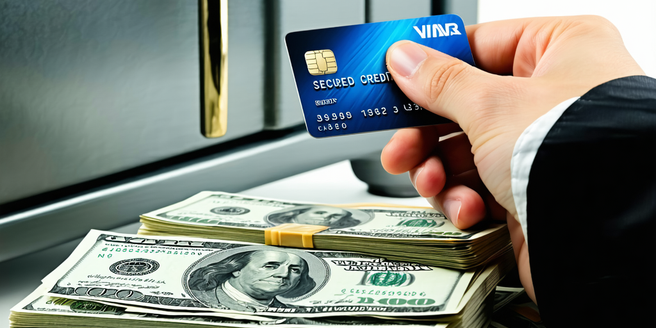
Understanding Secured Credit Cards
Secured credit cards require a cash deposit as collateral, which serves as security for the card issuer. This deposit typically determines your credit limit. Secured cards are an excellent option for individuals with little to no credit history, or for those trying to rebuild their credit. By using a secured credit card responsibly—making payments on time and keeping balances low—users can improve their credit score over time. The primary advantage of a secured credit card is that it offers a chance to build credit without the risk for the lender. However, they often come with fees and higher interest rates than unsecured cards. The key is to ensure that the benefits of building or repairing credit outweigh these costs. Once a solid credit history is established, users can transition to an unsecured credit card.
How Unsecured Credit Cards Work
Unsecured credit cards are the most common type of credit card and do not require a security deposit. Approval for these cards typically depends on your credit history and score. Unlike secured cards, unsecured cards offer a line of credit based on your creditworthiness, providing more flexibility but also more risk if not used responsibly. They often come with benefits like reward points, cash back, or travel perks. To maintain and improve credit with an unsecured card, it’s crucial to pay at least the minimum balance on time and keep utilization low. Interest rates can vary widely, so it’s important to understand the terms before applying. Responsible use of unsecured cards can lead to better borrowing terms and higher credit limits over time, fostering greater financial flexibility.
Key Differences Between Secured and Unsecured Cards
The primary difference between secured and unsecured credit cards lies in the requirement of a security deposit. Secured cards need a deposit, which is utilized as collateral, while unsecured cards do not. This deposit helps mitigate risk for issuers of secured cards. Consequently, secured cards are often easier to obtain if you have limited or damaged credit. Unsecured cards provide credit without a deposit but demand a good credit history for approval. Another difference is the credit limit. Secured cards typically have lower limits, determined by the deposit amount, whereas unsecured cards may offer higher limits based on your creditworthiness. While both cards report to credit bureaus, unsecured cards frequently come with better rewards and benefits. Selecting between them depends largely on individual credit circumstances and financial goals.
Pros and Cons of Secured Credit Cards
Secured credit cards offer a feasible path for those looking to build or repair their credit, as they are generally easier to qualify for compared to unsecured cards. The upfront security deposit acts as insurance for card issuers, allowing even those with poor credit history to gain access. One significant advantage is the potential to transition to an unsecured card once a reliable credit history is established. However, there are downsides, such as lower credit limits and possible fees. Additionally, the required deposit can be a hurdle for some, tying up funds that could otherwise be used or invested. Interest rates on secured cards are often higher, making it imperative for cardholders to manage their spending and payments prudently to avoid debt accrual.
Pros and Cons of Unsecured Credit Cards
Unsecured credit cards are widely available and come with no requirement for a security deposit, which is appealing to many. They often feature rewards programs like cash back, travel benefits, and promotional interest rates, providing added value for cardholders. However, they require a satisfactory credit score for approval, potentially limiting accessibility for some. While unsecured cards provide more spending flexibility, they also increase the risk of accumulating debt if not managed responsibly. Another downside can be high-interest rates for those with less favorable credit scores. Maintaining a low balance and timely payments is crucial to maximizing benefits and avoiding pitfalls. Overall, unsecured credit cards can be a valuable financial tool for those capable of using them effectively and responsibly.
